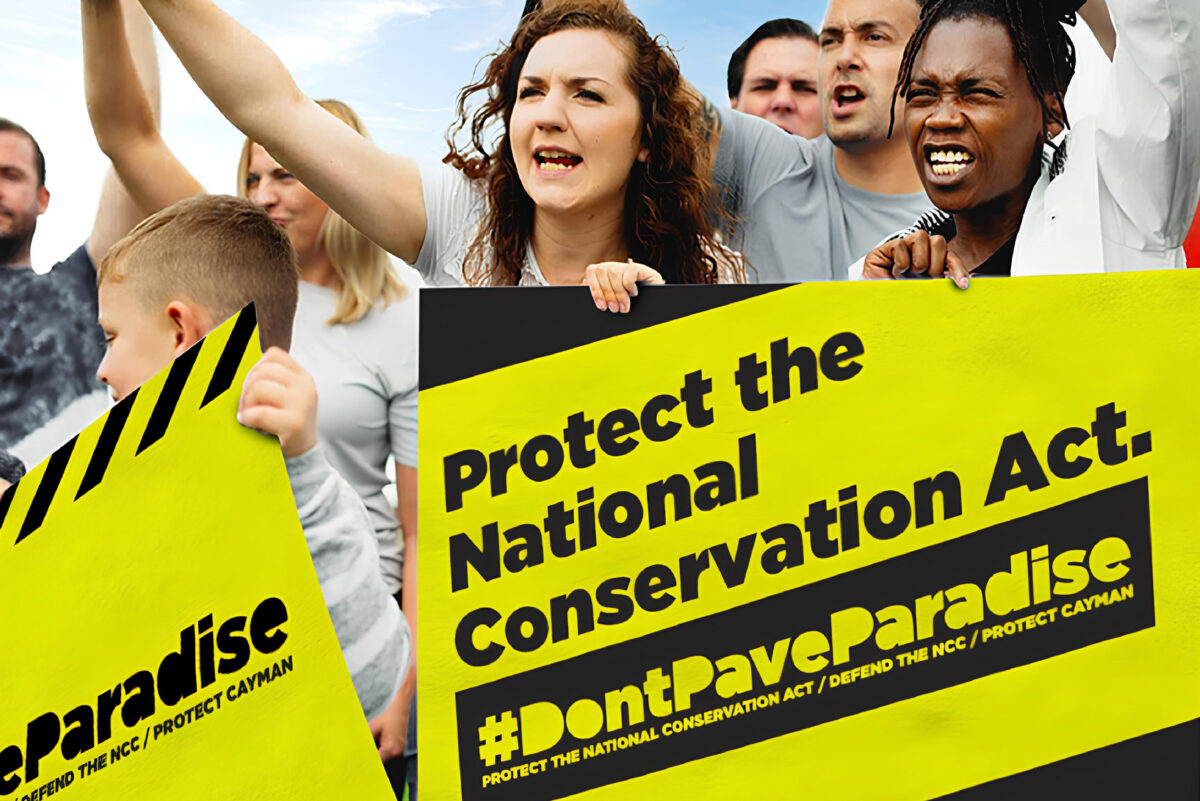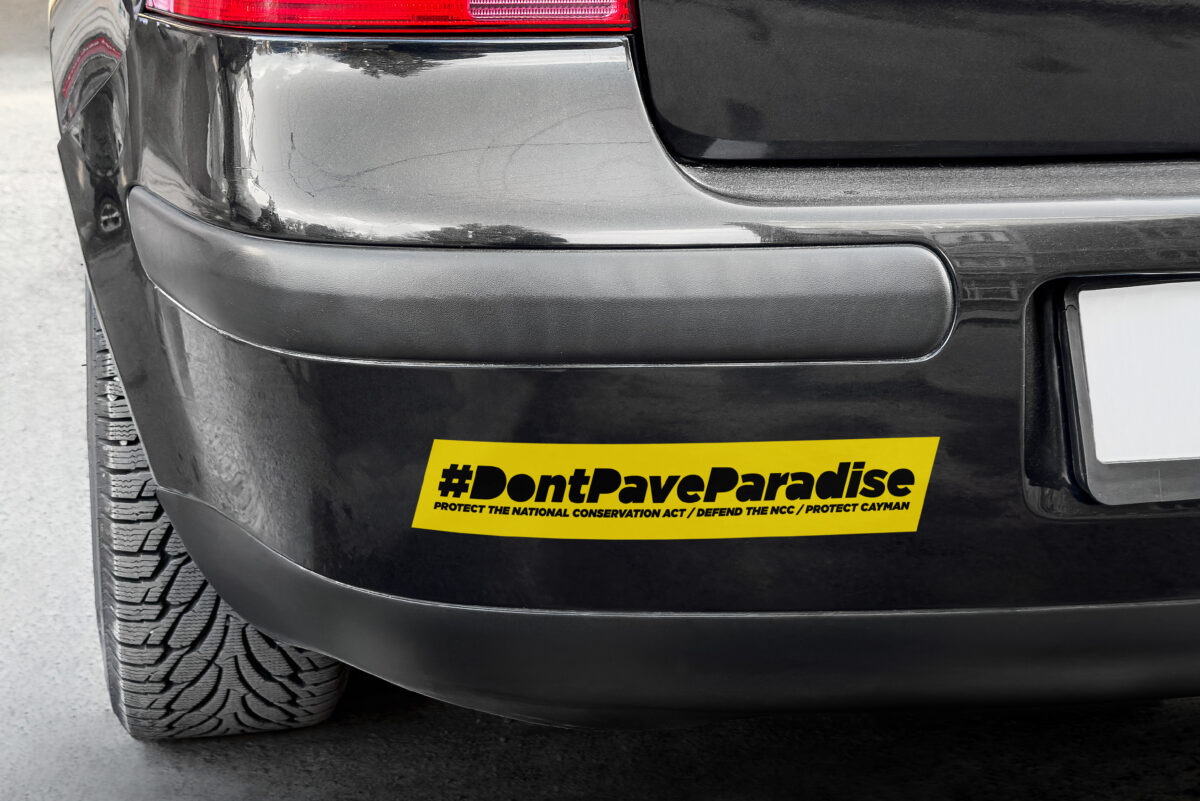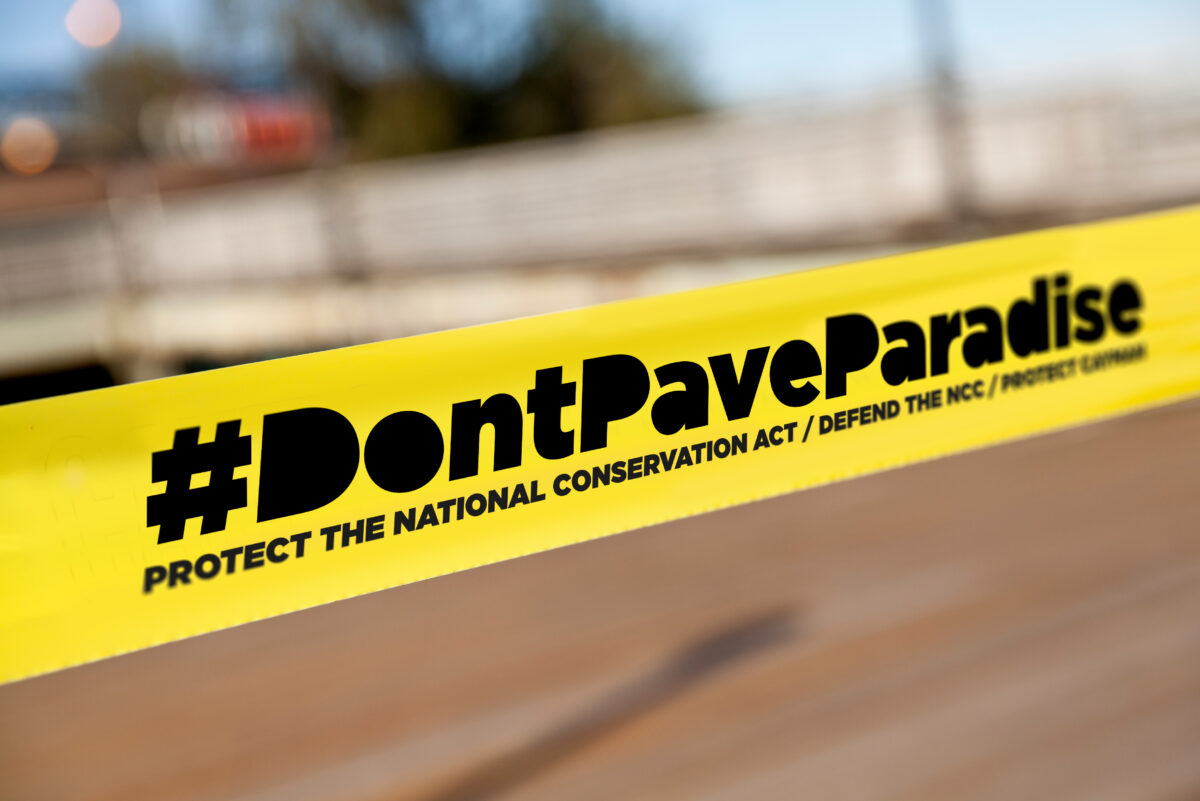Protect
The National
Conservation Act.
The National
Conservation Act.
Protecting our environment protects our way of life
There is a better way to develop that protects our community and does not compromise our way of life or standard of living. When we ask for development to be more sustainable, we’re asking that our people and environment aren’t put in second place to profit.
Say NO to National Conservation Act amendments
Don’t be misled by misinformation.
The NCA doesn’t stop us from building the housing and infrastructure we need; it simply makes sure we do it properly. The National Conservation Council is not the decision-maker on an EIA, nor does it have the power to designate land for protection. The ultimate authority is and has always been Cabinet. The only thing that Cabinet does not control is the requirement for an EIA but an EIA itself is not binding. It helps inform decision-making so that the best results can be achieved.
It is a lie to say that the NCC can stop any development project. It is a lie to say that the Director of Environment has more power than Cabinet. These are lies that the Grand Court, the Court of Appeal and the Privy Council have exposed.
The truth is the NCA helps us strike a balance between economic, social and environmental interests in Cayman. The truth is the National Conservation Council’s advice is not based on a single opinion, but on scientific data produced by a committee of eight technical experts.
The amendments proposed put our future at risk. The consequences of developing without properly considering the environmental impact will affect us all and ultimately make us all poorer in one way or another.
Compare the difference

PAVED AND BUILT WITHOUT PROPER PLANNING
Flood water has nowhere to go and inundates surrounding properties
Seawalls and buildings too close to the shoreline cause beach erosion
Loss of mangroves as storm protection, habitat for wildlife and microclimates
Land cleared of vegetation and lacking in biodiversity
Worsening traffic problems
Landscape lacks beauty and cultural significance, and vegetation loss causes higher temperatures
UNPAVED OR CAREFULLY DESIGNED
Absorbs stormwater naturally or with effective mitigation
Setbacks allow natural ebb and flow of sand along beaches
Maintain mangrove buffers to protect shorelines and provide healthy wetlands ecosystems
Native plants and animals thrive alongside human habitation
Better traffic flow with effective transportation alternatives
Beautiful landscaping that reflects our culture, provides usable public greenspaces and absorbs heat
This will get worse with climate change. Who will pay the costs?
Protect what matters.
Protect the National Conservation Act.
The only protection in law we have for our natural resources in the Cayman Islands is the National Conservation Act (2013). It protects our wildlife and their habitats on land and water. It ensures the unique beauty and biodiversity of the Cayman Islands will still be here for future generations to enjoy.
While a National Development Plan might help the country achieve a better balance between economic, social and environmental interests, it cannot provide the same legal protections as the National Conservation Act. And with the recently updated Planning Statement only in draft form, we do not know yet what that balance will be. The National Conservation Act does not prevent development; it simply requires that the impact on the environment is considered and minimised before building begins. Far from being a hindrance, the volume of projects approved and completed since the Act was passed in 2013 has not slowed.
At a time when our population is growing fast and available land space is shrinking, environmental protections are more important than ever.
Let’s say no to anything that might weaken the only environmental protection we have.




Join our movement.

1 Sign the petition
Add your name to the Don’t Pave Paradise petition on change.org and share why you want to protect our islands. The petition has no legal standing, but you can be sure people will hear.
2 Show your support
Contact us for your FREE bumper sticker, wrist band or t-shirt to show the world you support the #DontPaveParadise movement.
3 Use the hashtag
Share our content with friends and family and post it on your social media channels using the hashtag #dontpaveparadise. Tell your own stories, whether they're your experiences in nature or your perspectives on sustainable development.
4 Use your voice - VOTE
Let it be known how much you care: Attend the public meetings on the Development Plan, lobby your MP and make sure you are registered to vote in the next election. Every vote counts.
5 Learn more
There are many individuals and organisations in the Cayman Islands with expertise in the environment, climate change and sustainability. Below are a few resources where you can find out more about our natural environment and why it’s important we protect it before it’s too late.
Resources

Get the #DontPaveParadise asset pack.
Create your own content using our FREE to download asset pack with logos, social media templates and more to make sure our voices are heard loud and clear.
About Us
Follow us on social media or email us today.